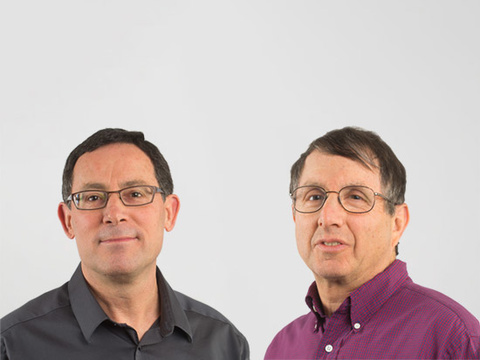CICS Alum Daniel Bernstein, Professors Shlomo Zilberstein and Neil Immerman Selected for IFAAMAS 2019 Influential Paper Award

College of Information and Computer Sciences (CICS) alum Daniel Bernstein (Ph.D. ‘05), Professor Shlomo Zilberstein and Professor Neil Immerman were selected to receive the 2019 IFAAMAS Influential Paper Award in Autonomous Agents and Multiagent Systems by the International Foundation for Autonomous Agents and Multiagent Systems (IFAAMAS) for their two papers, both titled, “The Complexity of Decentralized Control of Markov Decision Processes.” The first version of the paper, based on Bernstein’s doctoral synthesis project co-advised by Zilberstein and Immerman, was presented at the Conference on Uncertainty in Artificial Intelligence in 2000, and the extended version, co-authored by Robert Givan of Perdue University, was published in Mathematics of Operations Research in 2002.
As the IFAAMAS award committee explains, “These papers formally introduced the decentralized partially observable Markov decision process (Dec-POMDP), launching a subfield on principled models and solution methods for multiple cooperative agents with uncertainty and limited communication. Since then, the influence of the paper has spread widely and was followed by numerous other publications that include many theses, journal articles, conference papers and a recent book. Dec-POMDP methods have become well known in the AI community (e.g., becoming a popular model for deep multi-agent reinforcement learning) and have begun to be used in fields such as robotics and networking.”
The award was presented at the AAMAS 2019 (International Conference on Autonomous Agents and Multiagent Systems) held in Montréal, Canada from May 13-17, 2019. AAMAS is the flagship conference of IFAAMAS, a non-profit organization chartered to promote science and technology in the areas of artificial intelligence, autonomous agents and multiagent systems.
“I am thrilled to see the work recognized by the AAMAS community,” said Professor Zilberstein. He noted that Dan Bernstein’s doctoral dissertation created the foundation for studying Dec-POMDPs, and that other CICS alumni have made significant contributions to the development of the model and its applications, particularly Martin Allen (Ph.D. ‘09), Christopher Amato (Ph.D. ‘10), Raphen Becker (Ph.D. ‘06), Alan Carlin (Ph.D. ‘11), Claudia Goldman (Postdoc ‘01-’04), Akshat Kumar (Ph.D. ‘12), and Sven Seuken (MS ‘06).
Daniel Bernstein currently works as a tax professional at Bernstein Tax Services. He previously held roles as research scientist for Fiksu and vice president of research for Adverplex.
Professor Zilberstein is professor and associate dean of research and engagement for CICS, where he has taught since 1993, and serves as director of UMass Amherst’s Resource-Bounded Reasoning Lab. His research is focused on the computational foundations of automated reasoning and action, including the implications of uncertainty and limited computational resources on the design of autonomous agents. He is a fellow of the Association for the advancement of Artificial Intelligence (AAAI). Among other awards and accolades, he received the Chancellor’s Medal from UMass Amherst and the Distinguished Service Award from AAAI in 2019. He earned his doctorate in computer science from the University of California, Berkeley in 1993.
Professor Immerman is the creator of the field of Descriptive Complexity. His research applies methods from mathematical logic to static analysis, database theory and computational complexity. He is an ACM Fellow, a Guggenheim Fellow, and a recipient of the 1995 Godel Prize in theoretical computer science. He received his doctorate from Cornell University in 1980.